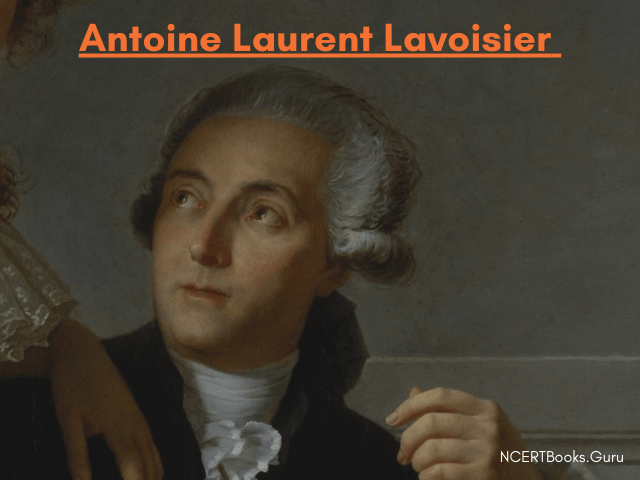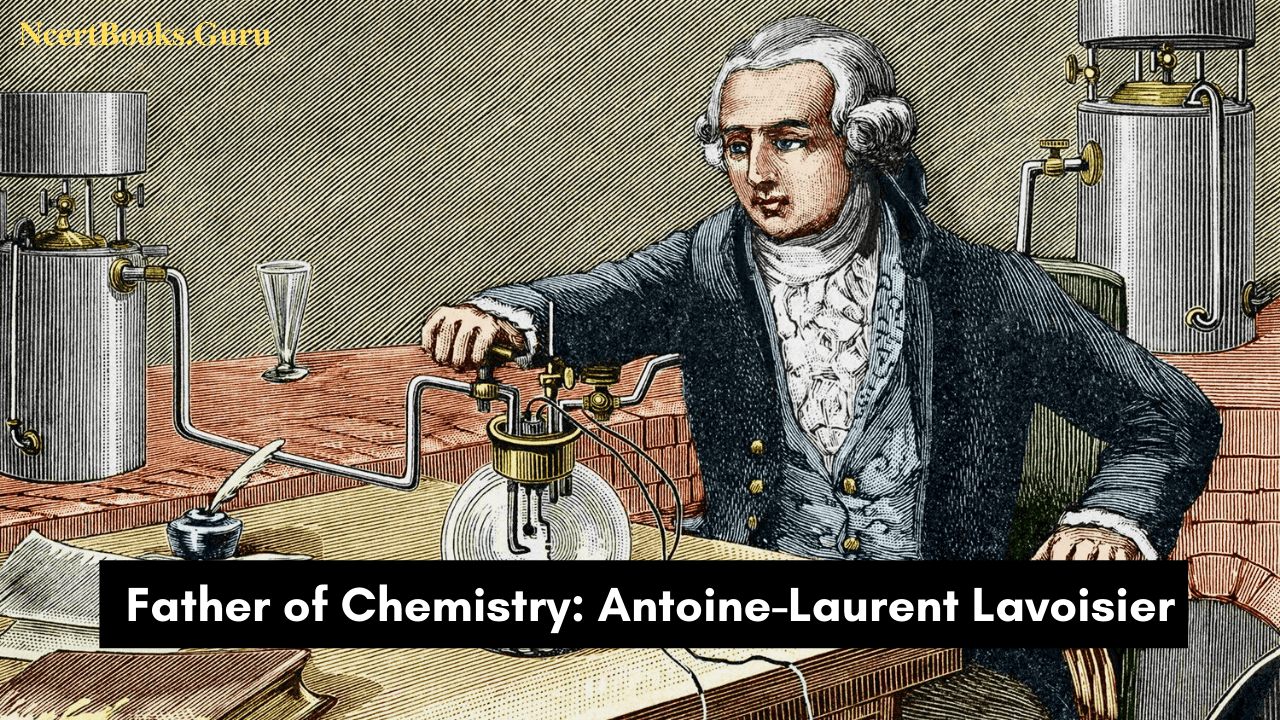Do you know Who is the Father of Chemistry? If not, then you have stepped into the right page. The father of Chemistry is Antoine Lavoisier. Complete details about the father of modern chemistry like biography and contributions to chemistry are discussed elaborately in this article. Also, you will find the table of the father of chemistry names for different subjects’ with the reasons why each of these people may be viewed to be the father of chemistry. Go through the below modules and find the important information about the father of chemistry.
This Blog Includes:
- Who is the Father of Chemistry?
- Birth, Early Life & Education
- Father of Modern Chemistry: Various Branches
- Major Contributions by Antoine Lavoisier to Chemistry
- FAQs on Antoine Lavoisier: Father of Chemistry
Who is the Father of Chemistry?
The title of Father of Chemistry is acquired by Antoine Lavoisier, in full Antoine-Laurent Lavoisier. Also, he was a careful experimenter and changed chemistry into modern chemistry. He developed the law of conservation of mass, determined that combustion and respiration are made by chemical reactions with what he termed “oxygen,” and accommodated systematize chemical nomenclature, among many other achievements. Due to the immense passion for the branch of science, he contributed his life to develop the field of chemistry particularly towards explaining the tiniest of particles. Hence, the father of chemistry was Antoine-Laurent Lavoisier.

Antoine Lavoisier Biography (Birth, Early Life & Education)
The birth anniversary of Antoine-Laurent Lavoisier was on August 26, 1743, in Paris, France. He was a French scientist who performed great discoveries in the department of chemistry. Antoine-Laurent Lavoisier was the first child and only son of a wealthy middle-class family living in Paris. At the age of twenty-one, even if adequately qualified for the legal profession and admitted to the French bar, Lavoisier gave his life to science and by 1765 his first scientific paper was contributed to the Académie des Sciences.
Also, Refer to Related Articles:
Different Branches – Father of Modern Chemistry
People who are called the father of a scientific field in chemistry are thought to be the originator of that scientific field. In some fields, many people are believed as founders, while in others the title of being the “father” is disputable.
| Subject | Father | Reason |
|---|---|---|
| Atomic theory (early) | Democritus | Founder of atomism in cosmology |
| Atomic theory (modern) | Father Roger Boscovich | First coherent description of atomic theory, well over a century before modern atomic theory emerged First scientific description of the atom as a building block for more complex structures |
| Chemical thermodynamics (modern) | Gilbert Lewis, Willard Gibbs, Merle Randall, and Edward Guggenheim (founders) | Books: Thermodynamics and the Free Energy of Chemical Substances (1923) and Modern Thermodynamics by the Methods of Willard Gibbs (1933); because of the major contributions of these two books in unifying the applications of thermodynamics to chemistry |
| Chemistry (early) | Jabir ibn Hayyan (Geber) | Introduced the experimental method in alchemy (d. 815) |
| Chemistry (modern) | Antoine Lavoisier Robert Boyle Jöns Berzelius John Dalton (founders) | Book: Elements of Chemistry (1787) Book: The Sceptical Chymist (1661) Development of chemical nomenclature (1800s) Revival of atomic theory (1803) |
| Nuclear chemistry | Otto Hahn | Book: Applied Radiochemistry (1936) First person to split an atomic nucleus (1938) Nobel Prize in Chemistry for discovery of nuclear fission (1944) |
| Periodic table | Dmitri Mendeleev | Arranged sixty-six elements (known at the time) in order of atomic weight by periodic intervals (1869) |
| Physical chemistry | Svante Arrhenius Wilhelm Ostwald Hermann von Helmholtz Willard Gibbs (founders) | Devised much of the theoretical foundation for physical chemistry through their publications off, On the Equilibrium of Heterogeneous Substances(1876), and Thermodynamik chemischer Vorgange(1882) |
Major Contributions to Chemistry by Antoine Lavoisier
Antoine Lavoisier leaves a great impact on the history of chemistry and also several people recognize him as the “father of chemistry”. Below presented points are the few important contributions by Lavoisier in the department of Chemistry.
- Lavoiser discovered that water was a compound and not an element.
- Oxygen theory of combustion.
- He is credited with establishing mass conservation in chemical reactions.
- He put forward the powerful oxygen theory of combustion.
- Lavoiser found that sulfur is an element and that diamond is a form of carbon.
- He co-discovered that respiration is a form of combustion.
- Antoine Lavoisier co-authored the first modern system of chemical nomenclature.
- Antoine Lavoisier is the one who addressed the first modern textbook on chemistry.
- He contributed to metric system adoption.
FAQs on Antoine Lavoisier: Father of Chemistry
1. Who is known as Father of Modern Chemistry?
The Father of Chemistry & Modern Chemistry is Antoine-Laurent Lavoisier.
2. When and where Antoine-Laurent Lavoisier was born?
Antoine-Laurent Lavoisier was born on August 26, 1743, in Paris, France.
3. What are the achievements of Antoine Lavoisier?
Antoine Lavoisier discovered that oxygen was an important element in combustion, and he gave the name of the element. He originated the modern system of naming chemical substances and has been called the “father of modern chemistry” for his importance on meticulous experimentation.
4. Who is known as Mother of Chemistry?
The Mother of Modern Chemistry is Marie Anne Paulze Lavoisier.
